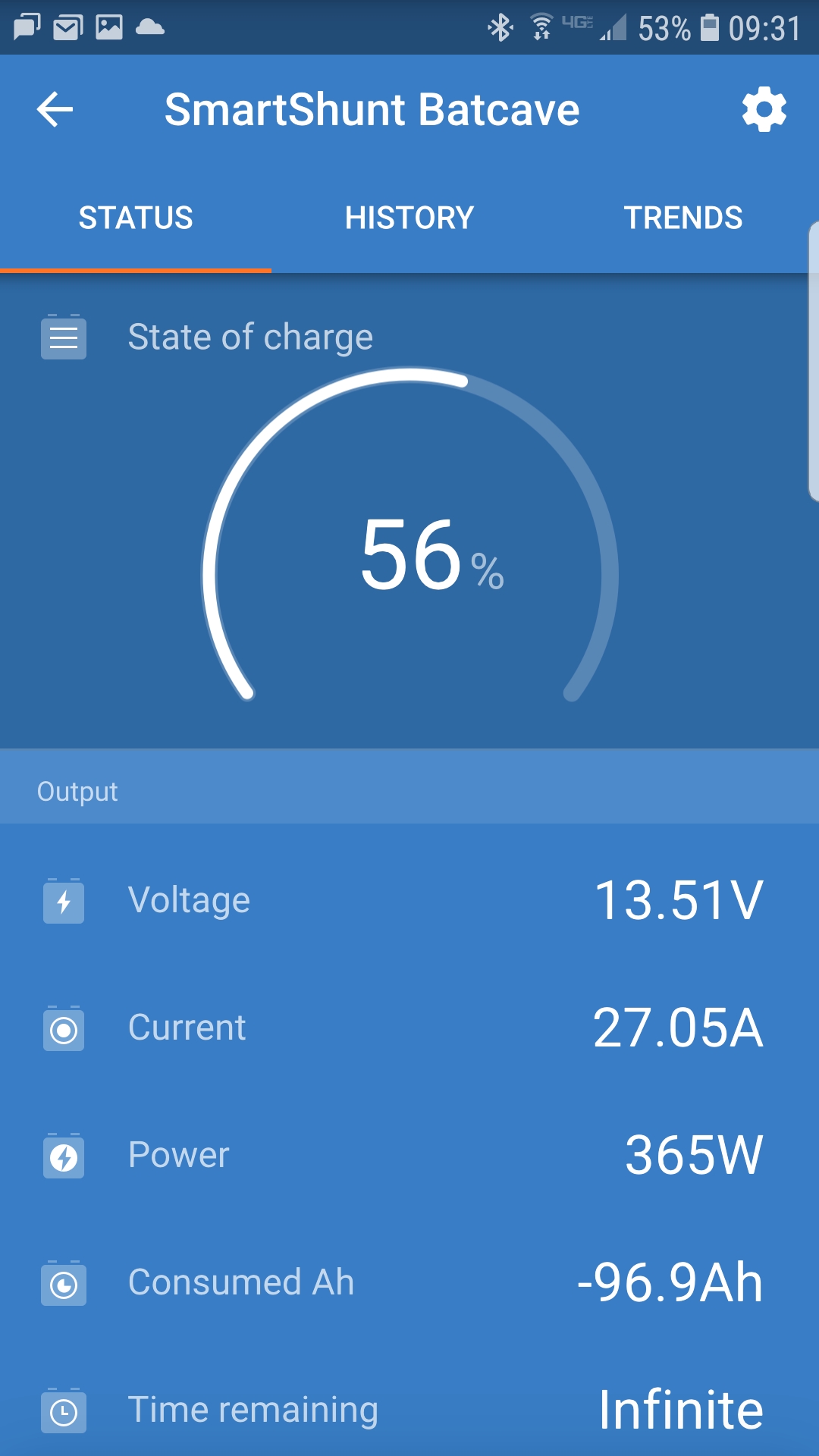My Orion-Tr Smart 12/12-30 Isolated is outputting half or less of its rated amperage to my battery bank, and that amperage falls over the course of a few minutes. With its current performance, its not enough to cover my DC refrigerator (15 amps) and charge the battery bank while I'm driving. What could be causing this?
Here's my setup.
- 2017 Toyota Tacoma w/ tow package (130 amp alternator) & travel trailer
- Two 100Ah Battle Born LiFePO4
- 6AWG positive and negative wires from starter battery to Orion and from Orion to batteries.
- Orion S/N 2048 (appears to be post rev. for overheat changes)
- Settings: Set to "Charger", Default LiFePO4, Smart Alternator, default vehicle shutdown
- Installation: Open air, 70°F ambient temperature, in upright position
- Victron SmartShunt

With the truck at idle after 2 minutes, the voltage at the starter battery posts is 13.5v. Input voltage to the cold Orion shows 13.1v. Cold Orion output voltage to the batts is around 13.5v.
Output amperage of the cold Orion as read by the SmartShunt starts at about 18 amps, well below the rated 30 amps. Battery SOC is only 54%. Vehicle is still at idle speed.

Over just 10 minutes, the output amperage slowly falls to as low as 12 amps. At this point, the Orion is barely warm to the touch.

This occurs regardless of engine speed. The following video shows the low amperage output over time even when the engine speed is held at 2600 RPM. High RPM starts at 00:30 in the video.
{placeholder}
Likewise, the input voltage to the Orion remains at 13.1v despite holding the engine speed at 2600 RPM.
{placeholder}
Where should I begin looking to determine why the output amperage is less than half of rated amperage?







